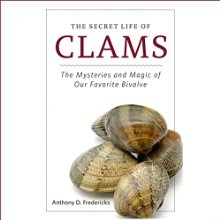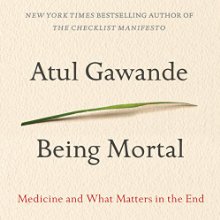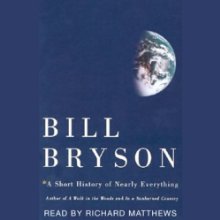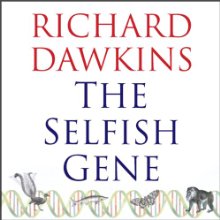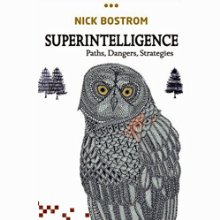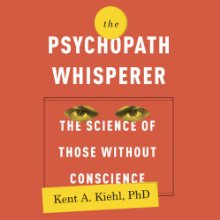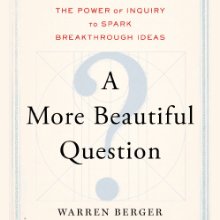Science & Technology
See all 3702 in Science & Technology- Astronomy(114)
- Biology(481)
- Environment(481)
- Magazine & Radio(597)
- Medicine(427)
- Physics(310)
- Psychology & The Mind(915)
- Technology(669)
-
Sex on Earth: A Celebration of Animal Reproduction
- UNABRIDGED (10 hrs and 28 mins)
- By Jules Howard
- Narrated By Jon Caruth
- Whispersync for Voice-ready
Written in a brilliantly engaging style by biologist Jules Howard, this fascinating and highly engaging work covers the how and why of sex on Earth, in all its diversity. From sperm wars to cuckoldry, hermaphrodites and virgin births, spent males, racy harems, clitoral births, hips, breasts and birdsong, penis-percussion, and those riskiest and most elusive of all traits, monogamy and true love, all this and more is discussed in Sex on Earth, as Jules takes us on a voyage of discovery of the ins and outs of animal reproduction.
-
A Voyage of Discovery
Author and Biologist Jules Howard leads listeners on a guided tour of the hows and whys of sex on Earth. This colorful and engaging exploration celebrates the wonders and peculiarities of animal reproduction - in all its beautiful (and sometimes shocking) diversity.
New Releases
See All >-
The Truth About Metaphysics: Understanding the Whole Concept of Metaphysics
- UNABRIDGED (33 mins)
- By Kendra Nicholson
- Narrated By Brandon Stevens
What is the meaning of life? Why am I here? How can I experience ultimate peace of mind? These are some of the few questions you probably ask yourself. Unfortunately, no one seems to answer these questions correctly. To answer these questions, you have to understand the whole concept of metaphysics. Get all the info you need here.
-
Nook eReader: Making Your Daily Tasks Much Simpler
- UNABRIDGED (24 mins)
- By Ellen Daniels
- Narrated By Ed Hawthorne
Once you learn the basics of the Nook it can be a very valuable tool. The Nook can make many of your daily tasks much simpler as well as provide a way to carry less around and entertain yourself. Get all the info you need here.
-
Internet Business Shortcuts: Make Decent Money Online Without Taking Years to Get There
- UNABRIDGED (1 hr and 22 mins)
- By Buck Flogging
- Narrated By Matt Stone
Everyone wants to make some money online, and making enough to be able to throw your alarm clock off of a tall building without remorse is the new American dream. But there's a problem that most don't want to face - it can take an eternity. And no one wants to quit their job and travel the world five to ten years from now. You want to do it by no later than yesterday!
-
Rare Conditions
- UNABRIDGED (21 mins)
- By Thomas Hodge
- Narrated By Gwen Trussler
Some sickness you hear about every day. Some illnesses you rarely hear about or come across. Some things like allergies to the cold or semen or exotic disorders or diseases.
-
Pet Lover: Guide to Creating a Website for Pet Owners
- UNABRIDGED (34 mins)
- By Fritz Harris
- Narrated By Clare Feighan
Create a social networking website for a certain type of dog owner - it could be a breed, size, anything. It would be free for people to use and sign up, and you make money with the advertising you place on the website paged. Learn how!
-
The Secret Life of Clams: The Mysteries and Magic of Our Favorite Shellfish
- UNABRIDGED (10 hrs and 37 mins)
- By Anthony Fredericks
- Narrated By Jason Culp
Get up close and personal with an amazing creature that has invaded our lexicon as well as our restaurants. It breathes with tubes, it has no head or brain, it feeds through a filter, and it is the source of dozens of familiar proverbs ("happy as a clam!"). Clams, it turns out, have been worshipped (by the Moche people of ancient Peru), used as money (by the Algonquin Indians), and consumed by people for thousands of years.
-
Guide to Affiliate: A Guide to Finding a Way to Reach the Right People
- UNABRIDGED (2 hrs and 17 mins)
- By Sheena Burk
- Narrated By Cyrus
In this day and age, the biggest problem most advertisers have is finding a way to reach the right people with that carefully targeted advertisement so that it will do the most good. And that is where so many of the new advertising schemes and techniques began - first with mass email and postal blitzes which were considered effective if they had a one-percent return, and then as the web grew and people became more sophisticated online banner ads and sales.
-
Swine Influenza: Influenza Classifications, Types and Sub-types
- UNABRIDGED (25 mins)
- By Angeline Landry
- Narrated By Gwen Trussler
This book is all about one of the potent diseases which is the Influenza. It has been quite popular for the past few decades, with a series of researches and experiments being conducted on it. Influenza is a Latin word means "to influence" and is basically an infectious or a contagious disease primarily caused by the RNA viruses belonging to the family Orthomyxoviridae that affects the birds and mammals exclusively. Get more info here.
-
The Net Shopping: Discovering The Latest Craze in Net Shopping
- UNABRIDGED (22 mins)
- By Julia Bennett
- Narrated By Jay Hill
Are you an entrepreneur by heart or already have a business on the verge of starting up? Then most likely you might have already attempted doing business in a physical store. It might also be that you've attempted working with other entrepreneurs. Certainly you've heard about the latest craze for net shopping. Listen to this book to discover the latest in net shopping.
-
About Shooting Games: Strategies That Will Make You Become Good with Shooting Games
- UNABRIDGED (30 mins)
- By Deborah Gray
- Narrated By Jay Hill
What makes most shooting games interesting and fun to play? Like lots of other kinds of arcade games, shooting games offer a very entertaining and fun way of spending few minutes or hours depending on your time availability. But the overall attractiveness of this kind of game is definitely its simplicity as compared to other kinds of games requiring players to complete multiple objectives and goals in order to achieve game success. The basic idea and concept of shooting games is simple - "Aim and Fire".
-
Science News, November 15, 2014
- HIGHLIGHTS (54 mins)
- By Society for Science & the Public
- Narrated By Mark Moran
Turn to Science News for the latest coverage of biology, astronomy, the physical sciences, behavioral sciences, math and computers, chemistry, and earth science. This 75-year-old publication is known for its sharp writing and up-to-date coverage of the latest scientific research. Since its debut in 1922, Science News has been committed to providing reports on scientific and technical developments that the layman would find interesting and easy to digest.
-
Cura Te Ipsum: An Integrative Psychotherapy Model
- UNABRIDGED (34 mins)
- By Hannah Spicer
- Narrated By Michael Whalen
The phrase 'cura te ipsum' is Latin, meaning "Heal thyself." Existential psychology, Adler's psychoanalytic approach and Ellis rational emotive behavioral therapy have a number of things in common. Each of these approaches expects the client to find health through making the choice to change self-perception and then acting accordingly; in a sense, the clients are healing themselves.
-
IM Secrets: The Psychological Trigger That Makes Sales
- UNABRIDGED (30 mins)
- By Thomas Sander
- Narrated By Clare Feighan
Secret Number One is fairly common powerful knowledge. Secret Number Two will likely be a surprise. Secret Number Three might make you fall backwards out of your chair. These are literally the three biggest IM secrets I know. You can use each secret to ethically reach through your prospects' computer screens and rip the money out of their wallets... while they enjoy every minute.
-
Your Best Brain: The Science of Brain Improvement
- ORIGINAL (12 hrs and 39 mins)
- By The Great Courses
- Narrated By Professor John Medina
In Your Best Brain, Professor John J. Medina - an award-winning scientist, New York Times best-selling author, and leading advocate for brain research - delivers 24 exciting lectures that probe the origins of consciousness, memory, emotion, attention, intelligence, and beyond. He focuses on five key areas of study in neuroscience: the brain’s physical structure and function, and how it enabled us to become the planet’s apex predator.
-
Intertwingled: Information Changes Everything
- UNABRIDGED (5 hrs and 43 mins)
- By Peter Morville
- Narrated By Gary D. MacFadden
- Whispersync for Voice-ready
This is a book about everything. Or, to be precise, it explores how everything is connected from code to culture. We think we're designing software, services, and experiences, but we're not. We are intervening in ecosystems. Until we open our minds, we will forever repeat our mistakes. In this spirited tour of information architecture and systems thinking, Peter Morville connects the dots between authority, Buddhism, classification, synesthesia, quantum entanglement, and volleyball.
-
Do Zombies Dream of Undead Sheep?: A Neuroscientific View of the Zombie Brain
- UNABRIDGED (7 hrs and 4 mins)
- By Timothy Verstynen, Bradley Voytek
- Narrated By Scott Aiello
In Do Zombies Dream of Undead Sheep?, neuroscientists and zombie enthusiasts Timothy Verstynen and Bradley Voytek apply their neuro-know-how to dissect the puzzle of what has happened to the zombie brain to make the undead act differently than their human prey. Combining tongue-in-cheek analysis with modern neuroscientific principles, Verstynen and Voytek show how zombism can be understood in terms of current knowledge regarding how the brain works.
-
Hill Climb Racing Guide: How to Download for Android PC IOS Kindle + Tips: The Complete Install Guide and Strategies: Works on ALL Devices!
- UNABRIDGED (19 mins)
- By HIDDENSTUFF ENTERTAINMENT
- Narrated By Lea Gulino
Are you a fan of the game? Do you want to install and play the game on any phone, PC, or tablet? This guide will help you install on the Kindle, Kindle HD, Kindle HDX, any Android phone/tablet, PC, or iPhone/iPad.Following this guide you can get the game installed and begin playing right away in as little as a few minutes!
-
The Introvert Personality: The Advantage of Introverts in an Extrovert World (Introvert Personality Series)
- UNABRIDGED (49 mins)
- By J.D. Rockefeller
- Narrated By Tessa Petersen
Understanding the complexities of the introvert's mind is essential to interacting with this personality type. Although there are marked differences between extroverts and introverts, both have advantages and disadvantages. However, you'd be surprised to know that many of the greatest inventors and personalities in history have been introverts. Read more to find out more about this fascinating personality type.
-
Authentic Happiness in Seven Emails: A Philosopher's Simple Guide to the Psychology of Joy, Satisfaction, and a Meaningful Life, Psychology of Happiness, Book 1
- UNABRIDGED (3 hrs and 35 mins)
- By Javy W Galindo
- Narrated By Jeff Bower
Are you tired of the pursuit of happiness? Learn how to choose happiness in this practical, easy-to-listen text outlining the keys to finding authentic happiness.After years of pursuing happiness through money, relationships, and material possessions (living life the way she thought she was supposed to be living it), Vickay found herself trapped, unfulfilled, and unhappy. A college course on the psychology of happiness taught by a philosophy instructor piqued her curiosity.
-
Mobilizing the Life Force
- ORIGINAL (3 hrs and 5 mins)
- By Lawrence Le Shan
- Narrated By Lawrence Le Shan
On Mobilizing the Life Force, medical researcher and bestselling author Dr. Lawrence LeShan presents a powerful case for the mind's essential role in helping the body overcome cancer and other serious illnesses. Drawing from a lifetime of research that helped redefine our understanding of mind-body medicine, he shows how the mind can take direct psychological action in concert with medical treatment, to make the crucial difference in "jump-starting" a compromised immune system.
Best Sellers
See All >-
Undeniable: Evolution and the Science of Creation
- UNABRIDGED (9 hrs and 29 mins)
- By Bill Nye
- Narrated By Bill Nye
Sparked by a provocative comment to BigThink.com last fall, and fueled by a highly controversial debate with Creation Museum curator Ken Ham, Bill Nye's campaign to confront the scientific shortcoming of creationism has exploded in just a few months into a national crusade.
-
The Innovators: How a Group of Hackers, Geniuses, and Geeks Created the Digital Revolution
- UNABRIDGED (17 hrs and 28 mins)
- By Walter Isaacson
- Narrated By Dennis Boutsikaris
- Whispersync for Voice-ready
Following his blockbuster biography of Steve Jobs, The Innovators is Walter Isaacson’s revealing story of the people who created the computer and the Internet. It is destined to be the standard history of the digital revolution and an indispensable guide to how innovation really happens. What were the talents that allowed certain inventors and entrepreneurs to turn their visionary ideas into disruptive realities? What led to their creative leaps? Why did some succeed and others fail?
-
The Power of Habit: Why We Do What We Do in Life and Business
- UNABRIDGED (10 hrs and 57 mins)
- By Charles Duhigg
- Narrated By Mike Chamberlain
At its core, The Power of Habit contains an exhilarating argument: The key to exercising regularly, losing weight, raising exceptional children, becoming more productive, building revolutionary companies and social movements, and achieving success is understanding how habits work. Habits aren’t destiny. As Charles Duhigg shows, by harnessing this new science, we can transform our businesses, our communities, and our lives.
-
Thinking, Fast and Slow
- UNABRIDGED (20 hrs and 2 mins)
- By Daniel Kahneman
- Narrated By Patrick Egan
The guru to the gurus at last shares his knowledge with the rest of us. Nobel laureate Daniel Kahneman's seminal studies in behavioral psychology, behavioral economics, and happiness studies have influenced numerous other authors, including Steven Pinker and Malcolm Gladwell. In Thinking, Fast and Slow, Kahneman at last offers his own, first book for the general public. It is a lucid and enlightening summary of his life's work. It will change the way you think about thinking. Two systems drive the way we think and make choices, Kahneman explains....
-
Being Mortal: Medicine and What Matters in the End
- UNABRIDGED (9 hrs and 3 mins)
- By Atul Gawande
- Narrated By Robert Petkoff
- Whispersync for Voice-ready
In Being Mortal, bestselling author Atul Gawande tackles the hardest challenge of his profession: how medicine can not only improve life but also the process of its ending. Medicine has triumphed in modern times, transforming birth, injury, and infectious disease from harrowing to manageable. But in the inevitable condition of aging and death, the goals of medicine seem too frequently to run counter to the interest of the human spirit.
-
David and Goliath: Underdogs, Misfits, and the Art of Battling Giants
- UNABRIDGED (7 hrs)
- By Malcolm Gladwell
- Narrated By Malcolm Gladwell
In David and Goliath, Malcolm Gladwell challenges how we think about obstacles and disadvantages, offering a new interpretation of what it means to be discriminated against, or cope with a disability, or lose a parent, or attend a mediocre school, or suffer from any number of other apparent setbacks. Gladwell begins with the real story of what happened between the giant and the shepherd boy those many years ago.
-
Quiet: The Power of Introverts in a World That Can't Stop Talking
- UNABRIDGED (10 hrs and 39 mins)
- By Susan Cain
- Narrated By Kathe Mazur
- Whispersync for Voice-ready
At least one-third of the people we know are introverts. They are the ones who prefer listening to speaking, reading to partying; who innovate and create but dislike self-promotion; who favor working on their own over brainstorming in teams. Although they are often labeled "quiet," it is to introverts that we owe many of the great contributions to society--from van Gogh’s sunflowers to the invention of the personal computer.
-
A Short History of Nearly Everything
- UNABRIDGED (17 hrs and 48 mins)
- By Bill Bryson
- Narrated By Richard Matthews
- Whispersync for Voice-ready
Bill Bryson has been an enormously popular author both for his travel books and for his books on the English language. Now, this beloved comic genius turns his attention to science. Although he doesn't know anything about the subject (at first), he is eager to learn, and takes information that he gets from the world's leading experts and explains it to us in a way that makes it exciting and relevant.
-
What If?: Serious Scientific Answers to Absurd Hypothetical Questions
- UNABRIDGED (6 hrs and 36 mins)
- By Randall Munroe
- Narrated By Wil Wheaton
Millions of people visit xkcd.com each week to read Randall Munroe's iconic webcomic. His stick-figure drawings about science, technology, language, and love have a large and passionate following. Fans of xkcd ask Munroe a lot of strange questions. What if you tried to hit a baseball pitched at 90 percent of the speed of light? How fast can you hit a speed bump while driving and live? If there were a robot apocalypse, how long would humanity last?
-
The Tipping Point: How Little Things Can Make a Big Difference
- UNABRIDGED (8 hrs and 38 mins)
- By Malcolm Gladwell
- Narrated By Malcolm Gladwell
- Whispersync for Voice-ready
In The Tipping Point, New Yorker writer Malcolm Gladwell looks at why major changes in society happen suddenly and unexpectedly. Just as a single sick person can start an epidemic of the flu, so too can a few fare-beaters and graffiti artists fuel a subway crime wave, or a satisfied customer fill the empty tables of a new restaurant. These are social epidemics, and the moment when they take off, when they reach their critical mass, is the Tipping Point.
-
Einstein: His Life and Universe
- UNABRIDGED (21 hrs and 30 mins)
- By Walter Isaacson
- Narrated By Edward Herrmann
- Whispersync for Voice-ready
Why we think it’s a great listen: You thought he was a stodgy scientist with funny hair, but Isaacson and Hermann reveal an eloquent, intense, and selfless human being who not only shaped science with his theories, but politics and world events in the 20th century as well. Based on the newly released personal letters of Albert Einstein, Walter Isaacson explores how an imaginative, impertinent patent clerk became the mind reader of the creator of the cosmos.
-
The Willpower Instinct: How Self-Control Works, Why It Matters, and What You Can Do to Get More of It
- UNABRIDGED (8 hrs and 20 mins)
- By Kelly McGonigal, Ph.D.
- Narrated By Walter Dixon
- Whispersync for Voice-ready
Based on Stanford University psychologist Kelly McGonigal's wildly popular course The Science of Willpower, The Willpower Instinct is the first book to explain the new science of self-control and how it can be harnessed to improve our health, happiness, and productivity. Informed by the latest research and combining cutting-edge insights from psychology, economics, neuroscience, and medicine, The Willpower Instinct explains exactly what willpower is, how it works, and why it matters.
-
Blink: The Power of Thinking Without Thinking
- UNABRIDGED (7 hrs and 43 mins)
- By Malcolm Gladwell
- Narrated By Malcolm Gladwell
In his landmark best seller The Tipping Point, Malcolm Gladwell redefined how we understand the world around us. Now, in Blink, he revolutionizes the way we understand the world within. Blink is a book about how we think without thinking, about choices that seem to be made in an instant, in the blink of an eye, that actually aren't as simple as they seem. Why are some people brilliant decision makers, while others are consistently inept?
-
Mastery
- UNABRIDGED (16 hrs and 8 mins)
- By Robert Greene
- Narrated By Fred Sanders
- Whispersync for Voice-ready
What did Charles Darwin, middling schoolboy and underachieving second son, do to become one of the earliest and greatest naturalists the world has known? What were the similar choices made by Mozart and by Caesar Rodriguez, the U.S. Air Force's last ace fighter pilot? In Mastery, Robert Greene's fifth book, he mines the biographies of great historical figures for clues about gaining control over our own lives and destinies. Picking up where The 48 Laws of Power left off, Greene culls years of research and original interviews to blend historical anecdote and psychological insight, distilling the universal ingredients of the world's masters.
-
Your Deceptive Mind: A Scientific Guide to Critical Thinking Skills
- ORIGINAL (12 hrs and 39 mins)
- By The Great Courses
- Narrated By Professor Steven Novella
No skill is more important in today's world than being able to think about, understand, and act on information in an effective and responsible way. What's more, at no point in human history have we had access to so much information, with such relative ease, as we do in the 21st century. But because misinformation out there has increased as well, critical thinking is more important than ever. These 24 rewarding lectures equip you with the knowledge and techniques you need to become a savvier, sharper critical thinker in your professional and personal life.
-
Proof: The Science of Booze
- UNABRIDGED (8 hrs and 45 mins)
- By Adam Rogers
- Narrated By Sean Runnette
A spirited narrative on the fascinating art and science of alcohol, sure to inspire cocktail party chats on making booze, tasting it, and its effects on our bodies and brains. Drinking gets a lot more interesting when you know what's actually inside your glass of microbrewed ale, single-malt whisky, or Napa Cabernet Sauvignon. All of them begin with fermentation, where a fungus called yeast binges on sugar molecules and poops out ethanol. Humans have been drinking the results for 10,000 years. Distillation is a 2,000-year-old technology - invented by a woman - that we're still perfecting today.
-
How We Got to Now: Six Innovations That Made the Modern World
- UNABRIDGED (6 hrs and 11 mins)
- By Steven Johnson
- Narrated By George Newbern
In this volume, Steven Johnson explores the history of innovation over centuries, tracing facets of modern life (refrigeration, clocks, and eyeglass lenses, to name a few) from their creation by hobbyists, amateurs, and entrepreneurs to their unintended historical consequences. Filled with surprising stories of accidental genius and brilliant mistakes - from the French publisher who invented the phonograph before Edison but forgot to include playback, to the Hollywood movie star who helped invent the technology behind Wi-Fi and Bluetooth.
-
Influence: Science and Practice, ePub, 5th Edition
- UNABRIDGED (12 hrs and 26 mins)
- By Robert B. Cialdini
- Narrated By Lloyd James
Widely used in classes, as well as sold to people operating successfully in the business world, the eagerly awaited revision of Influence reminds the listener of the power of persuasion. Cialdini organizes compliance techniques into six categories based on psychological principles that direct human behavior: reciprocation, consistency, social proof, liking, authority, and scarcity.
-
The Hot Zone: A Terrifying True Story
- UNABRIDGED (11 hrs and 5 mins)
- By Richard Preston
- Narrated By Richard M. Davidson
- Whispersync for Voice-ready
A highly infectious, deadly virus from the central African rain forest suddenly appears in the suburbs of Washington, D.C. There is no cure. In a few days, 90 percent of its victims are dead. A secret military SWAT team of soldiers and scientists is mobilized to stop the outbreak of this exotic "hot" virus. The Hot Zone tells this dramatic story, giving a hair-raising account of the appearance of rare and lethal viruses and their "crashes" into the human race. Shocking, frightening, and impossible to ignore, The Hot Zone proves that truth really is scarier than fiction.
-
It's Complicated: The Social Lives of Networked Teens
- UNABRIDGED (8 hrs and 24 mins)
- By danah boyd
- Narrated By Beth Wendell
- Whispersync for Voice-ready
What is new about how teenagers communicate through services such as Facebook, Twitter, and Instagram? Do social media affect the quality of teens' lives? In this eye-opening book, youth culture and technology expert Danah Boyd uncovers some of the major myths regarding teens' use of social media. She explores tropes about identity, privacy, safety, danger, and bullying. Ultimately, Boyd argues that society fails young people when paternalism and protectionism hinder teenagers' ability to become informed, thoughtful, and engaged citizens through their online interactions.
Best Sellers from Audible Studios
See All >-
It's Complicated: The Social Lives of Networked Teens
- UNABRIDGED (8 hrs and 24 mins)
- By danah boyd
- Narrated By Beth Wendell
- Whispersync for Voice-ready
What is new about how teenagers communicate through services such as Facebook, Twitter, and Instagram? Do social media affect the quality of teens' lives? In this eye-opening book, youth culture and technology expert Danah Boyd uncovers some of the major myths regarding teens' use of social media. She explores tropes about identity, privacy, safety, danger, and bullying. Ultimately, Boyd argues that society fails young people when paternalism and protectionism hinder teenagers' ability to become informed, thoughtful, and engaged citizens through their online interactions.
-
The Selfish Gene
- UNABRIDGED (16 hrs and 16 mins)
- By Richard Dawkins
- Narrated By Richard Dawkins, Lalla Ward
Richard Dawkins' brilliant reformulation of the theory of natural selection has the rare distinction of having provoked as much excitement and interest outside the scientific community as within it. His theories have helped change the whole nature of the study of social biology, and have forced thousands to rethink their beliefs about life.
-
Superintelligence: Paths, Dangers, Strategies
- UNABRIDGED (14 hrs and 16 mins)
- By Nick Bostrom
- Narrated By Napoleon Ryan
Superintelligence asks the questions: What happens when machines surpass humans in general intelligence? Will artificial agents save or destroy us? Nick Bostrom lays the foundation for understanding the future of humanity and intelligent life. The human brain has some capabilities that the brains of other animals lack. It is to these distinctive capabilities that our species owes its dominant position. If machine brains surpassed human brains in general intelligence, then this new superintelligence could become extremely powerful - possibly beyond our control.
-
How Dogs Love Us: A Neuroscientist and His Adopted Dog Decode the Canine Brain
- UNABRIDGED (7 hrs and 41 mins)
- By Gregory Berns
- Narrated By LJ Ganser
- Whispersync for Voice-ready
How Dogs Love Us answers the age-old question of dog lovers everywhere and offers profound new evidence that dogs should be treated as we would treat our best human friends: with love, respect, and appreciation for their social and emotional intelligence.
-
In the Plex: How Google Thinks, Works, and Shapes Our Lives
- UNABRIDGED (19 hrs and 52 mins)
- By Steven Levy
- Narrated By L. J. Ganser
- Whispersync for Voice-ready
Few companies in history have ever been as successful and as admired as Google, the company that has transformed the Internet and become an indispensable part of our lives. How has Google done it? Veteran technology reporter Steven Levy was granted unprecedented access to the company, and in this revelatory book he takes listeners inside Google headquarters - the Googleplex - to explain how Google works.
-
Sex at Dawn: How We Mate, Why We Stray, and What It Means for Modern Relationships
- UNABRIDGED (10 hrs and 57 mins)
- By Christopher Ryan, Cacilda Jetha
- Narrated By Allyson Johnson, Jonathan Davis, Christopher Ryan
- Whispersync for Voice-ready
Since Darwin's day, we've been told that sexual monogamy comes naturally to our species. Mainstream science - as well as religious and cultural institutions - has maintained that men and women evolved in families in which a man's possessions and protection were exchanged for a woman's fertility and fidelity. But this narrative is collapsing....
-
Social Engineering: The Art of Human Hacking
- UNABRIDGED (14 hrs and 56 mins)
- By Christopher Hadnagy, Paul Wilson (foreword)
- Narrated By A. T. Chandler
- Whispersync for Voice-ready
From elicitation, pretexting, influence and manipulation all aspects of social engineering are picked apart, discussed and explained by using real world examples, personal experience and the Science & Technology behind them to unraveled the mystery in social engineering. Kevin Mitnick - one of the most famous social engineers in the world - popularized the term social engineering. He explained that it is much easier to trick someone into revealing a password than to exert the effort of hacking.
-
The Confidence Gap: A Guide to Overcoming Fear and Self-Doubt
- UNABRIDGED (7 hrs and 39 mins)
- By Russ Harris, Steven Hayes PhD (foreword)
- Narrated By Graeme Malcolm
- Whispersync for Voice-ready
Russ Harris offers a surprising solution to low self-confidence, shyness, and insecurity: Rather than trying to "get over" our fears, he says, the secret is to form a new and wiser relationship with them. Paradoxically, it's only when we stop struggling against our fearfulness that we begin to find lasting freedom from it.
-
The Man Who Mistook His Wife for a Hat: and Other Clinical Tales
- UNABRIDGED (9 hrs and 36 mins)
- By Oliver Sacks
- Narrated By Jonathan Davis, Oliver Sacks
- Whispersync for Voice-ready
Oliver Sacks' The Man Who Mistook His Wife for a Hat tells the stories of individuals afflicted with fantastic perceptual and intellectual aberrations: patients who have lost their memories and with them the greater part of their pasts; who are no longer able to recognize people and common objects; who are stricken with violent tics and grimaces or who shout involuntary obscenities; whose limbs have become alien; who have been dismissed as retarded yet are gifted with uncanny artistic or mathematical talents.
-
Einstein's Cosmos: How Albert Einstein's Vision Transformed Our Understanding of Space and Time: Great Discoveries
- UNABRIDGED (6 hrs and 30 mins)
- By Michio Kaku
- Narrated By Ray Porter
- Whispersync for Voice-ready
A dazzling tour of the universe as Einstein saw it. How did Albert Einstein come up with the theories that changed the way we look at the world? By thinking in pictures. Michio Kaku, leading theoretical physicist (a cofounder of string theory) and best-selling science storyteller, shows how Einstein used seemingly simple images to lead a revolution in science. With originality and expertise, Kaku uncovers the surprising beauty that lies at the heart of Einstein's cosmos
-
A Whole New Mind: Why Right-Brainers Will Rule the Future
- UNABRIDGED (6 hrs and 19 mins)
- By Daniel H. Pink
- Narrated By Daniel H. Pink
Lawyers. Accountants. Software Engineers. That what Mom and Dad encouraged us to become. They were wrong. Gone is the age of "left-brain" dominance. The future belongs to a different kind of person with a different kind of mind: designers, inventors, teachers, storytellers - creative and emphatic "right-brain" thinkers whose abilities mark the fault line between who gets ahead and who doesn't.
-
Spillover
- UNABRIDGED (20 hrs and 47 mins)
- By David Quammen
- Narrated By Jonathan Yen
- Whispersync for Voice-ready
The emergence of strange new diseases is a frightening problem that seems to be getting worse. In this age of speedy travel, it threatens a worldwide pandemic. We hear news reports of Ebola, SARS, AIDS, and something called Hendra killing horses and people in Australia - but those reports miss the big truth that such phenomena are part of a single pattern. The bugs that transmit these diseases share one thing: they originate in wild animals and pass to humans by a process called spillover. David Quammen tracks this subject around the world.
-
The Paradox of Choice: Why More is Less
- UNABRIDGED (7 hrs and 6 mins)
- By Barry Schwartz
- Narrated By Ken Kliban
- Whispersync for Voice-ready
By synthesizing current research in the social sciences, Schwartz makes the counterintuitive case that eliminating choices can greatly reduce the stress, anxiety, and busyness of our lives. He offers eleven practical steps on how to limit choices to a manageable number, have the discipline to focus on the important ones and ignore the rest, and ultimately derive greater satisfaction from the choices you have to make.
-
Parallel Worlds: A Journey Through Creation, Higher Dimensions, and the Future of the Cosmos
- UNABRIDGED (14 hrs and 55 mins)
- By Michio Kaku
- Narrated By Marc Vietor
- Whispersync for Voice-ready
In this thrilling journey into the mysteries of our cosmos, best-selling author Michio Kaku takes us on a dizzying ride to explore black holes and time machines, multidimensional space and, most tantalizing of all, the possibility that parallel universes may lay alongside our own.
-
The Psychopath Whisperer: The Science of Those Without Conscience
- UNABRIDGED (11 hrs and 3 mins)
- By Kent A. Kiehl
- Narrated By Kevin Pariseau
- Whispersync for Voice-ready
We know of psychopaths from chilling headlines and stories in the news and movies - from Ted Bundy and John Wayne Gacy to Hannibal Lecter and Dexter Morgan. As Dr. Kent Kiehl shows, psychopaths can be identified by a checklist of symptoms that includes pathological lying; lack of empathy, guilt, and remorse; grandiose sense of self-worth; manipulation; and failure to accept one’s actions. But why do psychopaths behave the way they do? Is it the result of their environment - how they were raised - or is there a genetic component to their lack of conscience?
-
Mistakes Were Made (But Not By Me): Why We Justify Foolish Beliefs, Bad Decisions and Hurtful Acts
- UNABRIDGED (9 hrs and 4 mins)
- By Carol Tavris, Elliot Aronson
- Narrated By Marsha Mercant, Joe Barrett
- Whispersync for Voice-ready
Why do people dodge responsibility when things fall apart? Why the parade of public figures unable to own up when they screw up? Why the endless marital quarrels over who is right? Why can we see hypocrisy in others but not in ourselves? Are we all liars? Or do we really believe the stories we tell? Backed by years of research and delivered in lively, energetic prose, Mistakes Were Made (But Not by Me) offers a fascinating explanation of self-deception.
-
The Antidote: Happiness for People Who Can't Stand Positive Thinking
- UNABRIDGED (6 hrs and 17 mins)
- By Oliver Burkeman
- Narrated By Oliver Burkeman
- Whispersync for Voice-ready
The Antidote is a series of journeys among people who share a single, surprising way of thinking about life. What they have in common is a hunch about human psychology: that it’s our constant effort to eliminate the negative that causes us to feel so anxious, insecure, and unhappy. And that there is an alternative "negative path" to happiness and success that involves embracing the things we spend our lives trying to avoid.
-
The Blind Watchmaker: Why the Evidence of Evolution Reveals a Universe Without Design
- UNABRIDGED (14 hrs and 44 mins)
- By Richard Dawkins
- Narrated By Richard Dawkins, Lalla Ward
The Blind Watchmaker, knowledgably narrated by author Richard Dawkins, is as prescient and timely a book as ever. The watchmaker belongs to the 18th-century theologian William Paley, who argued that just as a watch is too complicated and functional to have sprung into existence by accident, so too must all living things, with their far greater complexity, be purposefully designed. Charles Darwin's brilliant discovery challenged the creationist arguments; but only Richard Dawkins could have written this elegant riposte.
-
A More Beautiful Question: The Power of Inquiry to Spark Breakthrough Ideas
- UNABRIDGED (7 hrs and 59 mins)
- By Warren Berger
- Narrated By Michael Quinlan
In this groundbreaking book, journalist and innovation expert Warren Berger shows that one of the most powerful forces for igniting change in business and in our daily lives is a simple, underappreciated tool - one that has been available to us since childhood. Questioning - deeply, imaginatively, "beautifully" - can help us identify and solve problems, come up with game-changing ideas, and pursue fresh opportunities. So why are we often reluctant to ask "Why?"
-
Consciousness and the Social Brain
- UNABRIDGED (7 hrs and 39 mins)
- By Michael S. A. Graziano
- Narrated By Sean Runnette
What is consciousness and how can a brain, a mere collection of neurons, create it? In Consciousness and the Social Brain, Princeton neuroscientist Michael Graziano lays out an audacious new theory to account for the deepest mystery of them all. In Graziano's theory, the machinery that attributes awareness to others also attributes it to oneself. Damage that machinery and you disrupt your own awareness. Graziano discusses the science, the evidence, the philosophy, and the surprising implications of this new theory.









